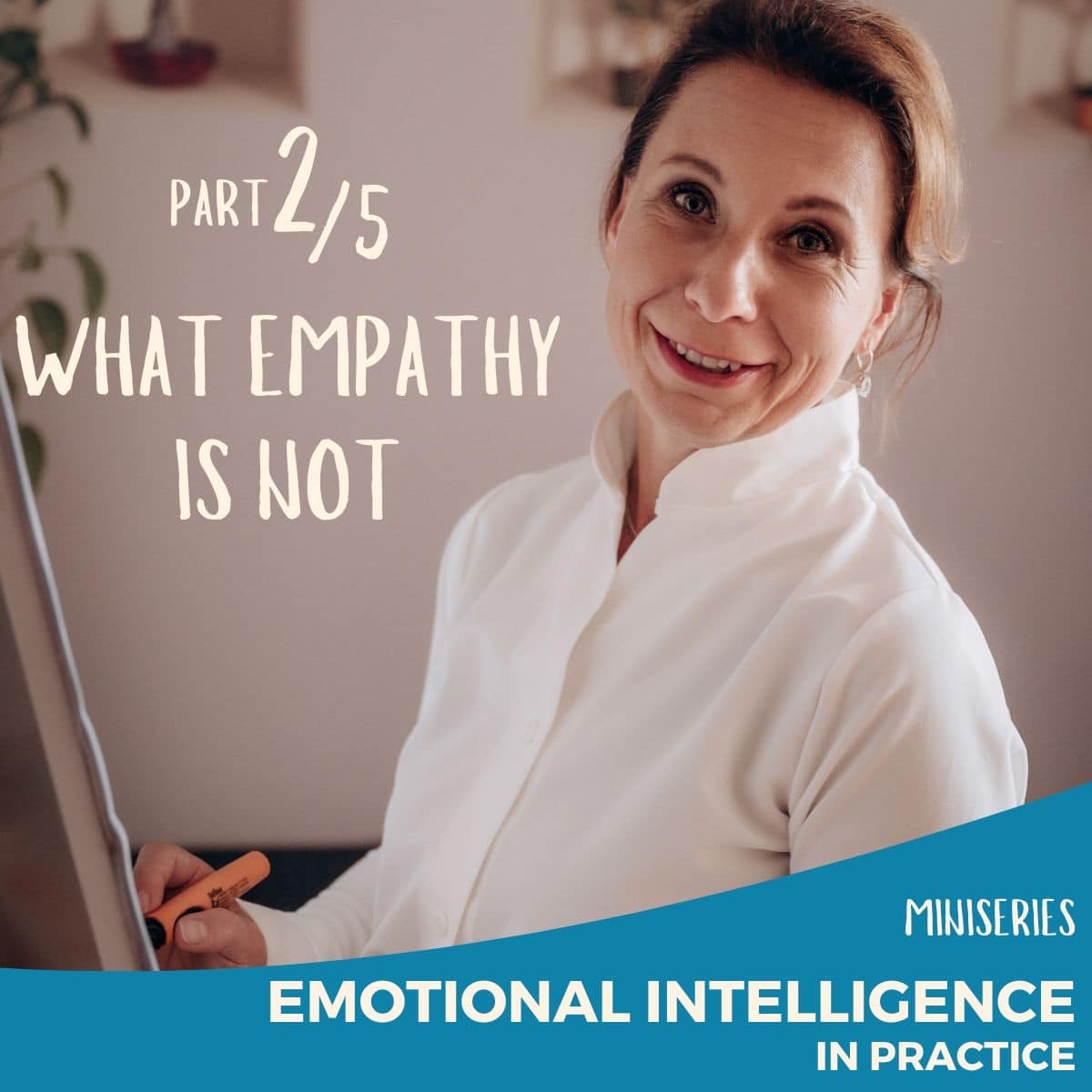MINISERIES:
Emotional Intelligence in Practice
Do you know the feeling? A team meeting, a couple of sharp emails, deadlines piling up.
And in the middle of it all, there’s a sentence hanging in the air—unspoken, but present:
“Just hold it together. Emotions don’t belong at work.”
But you’re not a robot. You’re human.
Whether you like it or not, you have emotions.
You can’t switch them off. They don’t just disappear. They get pushed below the surface—and when they go unspoken and unseen, they show up in other ways: irritability, exhaustion, outbursts, silence, anxiety…
💡Emotions aren’t the problem.
The problem is that we don’t know how to work with them.
At work. At home. In our own minds.
In emotional intelligence trainings, I see how much this topic resonates.
And how lost we often feel in it. The world of emotions feels unclear and confusing—like a fog beneath the surface. We lack the words for them, we don’t know how to tell them apart, and there are some we’d rather not feel at all… we simply don’t know what to do with them.
And yet emotions have a powerful impact on the quality of our relationships, team performance, creativity, innovation, engagement… even our health.
🧠 Emotional intelligence isn’t a gift you’re born with—or without.
It’s a set of skills, and we can learn it.
In the next parts of this mini-series, you’ll find simple inspiration to help you turn emotions into allies. If the topic speaks to you, join me again on Thursday—perhaps with your morning coffee. 😉
Take care. Wishing you all the best—not just with your emotions!
A colleague says:
“I spent the whole weekend working on that presentation. And them? No one even listened.”
You want to help, so you say:
“Maybe next time you could bring more energy.”
“Don’t take it so personally.”
“Don’t worry, it’ll be fine.”
You mean well. But you just missed the point.
What do we often mistake for empathy?
❌ Giving advice or trying to fix the problem
❌ Downplaying the situation
❌ Trying to make the person feel better
So what actually helps? Try something like:
✅ “That sounds really tough.”
✅ “Thanks for telling me.”
✅ “How can I help?”
Why does it matter? (Catalyst, 2021)
Empathetic leaders have:
• 44% more engaged teams
• 28% more innovation than leaders with low empathy
Empathy isn’t softness. It’s a strategic skill.
Empathy doesn’t mean you need to have the answer. It’s not about saying the perfect thing.
“I honestly don’t know what to say. But I’m here. What can I do for you?”
Even that can be a powerful response. What matters is that we don’t run away, we don’t avoid tough emotions—and we show real, authentic care.
❓A question for you:
What would you want to hear if you were in their shoes?
And what could you try next time someone comes to you feeling overwhelmed?
Take care. Wishing you the best on your empathy journey!
I am Katka
Your soft-skills & coaching partner



